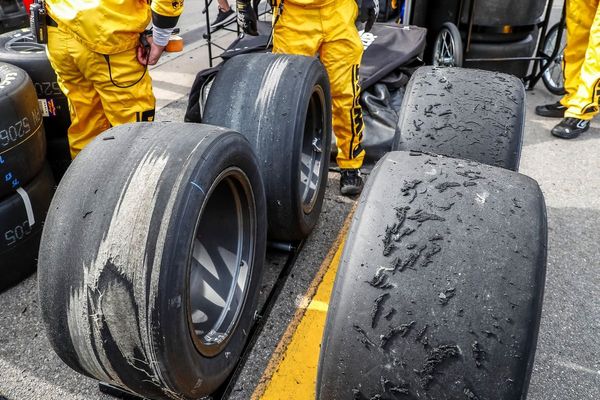PATRICK Harvie has said he would have quit as co-leader of the Scottish Greens sooner had it not been for Nicola Sturgeon giving him the chance to enter government.
In a wide-ranging interview with the Sunday National after he announced his intention to step down from the head of the Scottish Greens after 17 years, Harvie spoke about heading off the threat from the far-right, his biggest regret during his time as an MSP, and addressed reports of a divide between Green parliamentarians and the party membership.
He also declined to support anyone in the race to form the next Scottish Green co-leadership team – even his current co-leader Lorna Slater.
The Scottish Greens will elect two co-leaders in the summer, and Slater is due to stand again. She has been at the top of the party alongside Harvie since 2019, but is expected to see a challenge for her position as Harvie steps aside.
Asked about suggestions made to the Sunday National from within the Greens that Slater may struggle to win another term, especially without her usual running mate, Harvie said: “Well, I haven't heard anybody saying that, certainly not putting their name to it.
“In every political party, there are going to be differences of views, that's perfectly legitimate.
“I'd far rather that people spoke up and expressed their differences face to face rather than anonymous jibes and snide comments. That's not a very nice way to go about politics.”

“Lorna will make her case, and there's no doubt in my mind that we've got Lorna, among others, who are very capable, bright, articulate, professional, and driven people who've got the determination to take green politics forward.”
Asked who might do a good job as his replacement, Harvie said: “I'm not going to start naming names.
“You wouldn't be surprised that you're not the first person to try this so far this week. I don't think it would be helpful or appropriate for me to start naming names.
“Obviously, Lorna has said that she's going to re-stand. The whole party has seen that Lorna is well capable of doing the job to a high standard, but it's for the party members to decide.
“I don't think it would be helpful for me to start backing runners and riders.”
Stepping back after 17 years

“I'm really looking forward to seeing what a new leadership team will [do]. Whether that's partly new or wholly new, that's for the members to decide.”
'It's been coming for a long time'
THE outgoing Green leader said he would have taken the decision to leave earlier had the Bute House Agreement – which brought the Greens into government alongside the SNP after the 2021 Holyrood elections – not been put on the table. He described 17 years as a “ridiculous” amount of time to lead a political party.
“It does feel like something that has been coming for a long time,” he said of his decision to step down. “Even in the run-up to the last Holyrood election, I was conscious that it’d been a long stint already.
“I think if it hadn't been for the call from Nicola Sturgeon to say, ‘should we sit down and talk about a formal way of working together’, I might have made this decision a wee bit earlier in this parliamentary session.
“Obviously the opportunity did come along, and I wanted to grab that with both hands.”

Split between 'Holyrood caste' and Green activists
THE Scottish Greens have dealt with some internal unrest in recent years after the Bute House Agreement was unilaterally ended by former first minister Humza Yousaf weeks before its continuation would have gone to a vote of Scottish Green members.
In October, the party conference was left in limbo after members voted to throw out its entire agenda, against the wishes of the MSP group.
And last month, the party’s co-executive chair Jen Bell – one of the six most senior figures in the Greens – resigned claiming that there was a “Holyrood caste … [who] would gut your friend before laying a scratch on the enemy” and will “never build anything real”.
Asked if this divide between the Green parliamentarians and activists could define the upcoming party leadership contests, Harvie said: “No, and I think viewing things in that way is not helpful to the party.
“The party is a serious and prominent part of Scotland's political landscape. That's what has changed over the course of devolution and that's a good thing. It's a good thing that we have high-profile, effective parliamentarians working to deliver change in Scotland.
“I've no doubt there'll be some people who make the case within the party that our co-leaders should be in Holyrood to have that profile, to have that prominence, to put questions to the First Minister, and there'll be some people in the party who think that's not necessarily a requirement.
“It's not a constitutional requirement, it’s never been a constitutional requirement. But it's a political judgement for every party member to make, not just should I vote for an MSP because they're an MSP, but who the right voices are to represent green politics and to take green politics forward.
“I'm not going to tell other members how to reach that judgement. It's for every party member to reach that judgement. I'll reach my own. I don't know that I'm going to tell anyone what it is yet.”
Pushed on whether there was a divide in the party and if he had contributed to it, Harvie said: “I think some people feel that way, how significant a number that is, I don't know.
“If you take something like the Bute House Agreement, for example, there were always a small number of people who voted against that. But if you look at the overall process, it was the most inclusive, most participative democratic process the party had ever gone through …
“Now if some people find it hard to accept that they didn't persuade the majority of the party of their scepticism about that, that's perfectly fine, that's just democracy.”
'That's the biggest mistake'
BUT while tensions may exist between party activists and parliamentarians, Harvie was impressed at just how much relied on the Greens’ grassroots – and described not building it up sooner as his biggest mistake in parliament.
“When I was first elected [to Holyrood in 2007], we went from one to seven seats. It was very, very exciting. This incredible period of growth … we did change the perception of the Greens. We did that by taking our jobs seriously, by taking parliament seriously, but that early growth wasn't built on firm foundations.

“As a result, we lost most of our seats, we went down to two seats in Parliament, and we were stuck there. To me, that's the biggest mistake that we've made in my time in the Scottish Parliament.”
Can the Greens combat Reform UK if they're viewed as 'too middle class'?
ELSEWHERE, Harvie addressed a perennial problem for the Greens in Scotland and around the world – the public often view them as too middle-class.
He drew links to Nigel Farage and the far-right, who he said are so often rich elites pretending to be for the working class, a group which he argued Green policies have actually helped.

“I didn't go to private school. I wasn't a merchant banker or a futures trader or something like [Farage].
“There's nothing new about the fact that the far-right will often be elites, economic elites who present themselves as anti-elitist.
“We've even seen Jacob Rees-Mogg pretend to be speaking up against elitism, for goodness sake. Super-rich individuals like Musk and Trump try and pretend that they're standing up against elitism.
“It's absolutely absurd and it's a lie that needs to be called out.”
Asked how best to do that, whether the Greens should pick fights with Reform UK or just ignore them, Harvie went on: “The problem is – and the reason why Reform are being given such an opportunity in UK politics at the moment – is that the political centre, the dominant political parties, are not offering the kind of changes that people quite rightly are impatient for.
“If you look at the expectations that people had of an incoming Labour Government, did they really expect that a Chancellor faced with difficult economic circumstances would come after disabled people's social security, or older people's heating support, rather than thinking, ‘OK, it's, it's time for the super-rich to pay a little bit more’?
“The anger that the far-right is tapping into is legitimate.”
Asked why polling suggested people were looking to Farage and not the Greens for change, he said: “We've demonstrated that we're able to build a parliamentary group, get councillors right across the country. We've got a succession of best-ever election results and record high sustained polling during the Bute House Agreement, despite the right-wing press throwing everything they had at us.
“I mean, the hostility was immense. You compare that to the free pass that Farage and Reform get from a lot of the media, even from public service broadcasters, effectively putting GB News presenters up as though they're neutral pundits, never mind the billionaire-owned far-right press itself.”
Harvie said that it would be important to rather than respond directly to “disinformation, frankly lies, I think you need to direct your conversation at the audience”.







